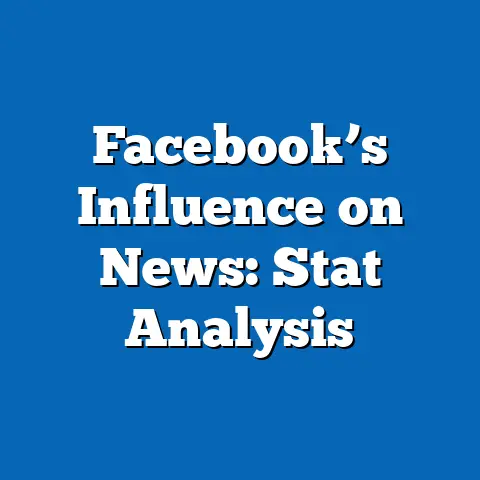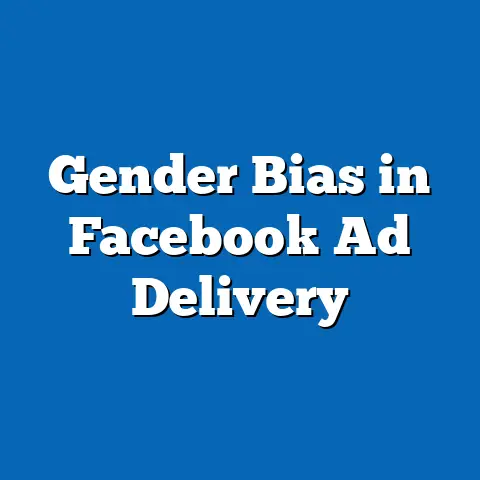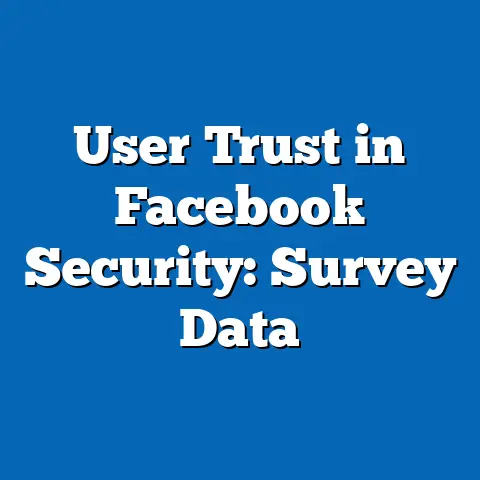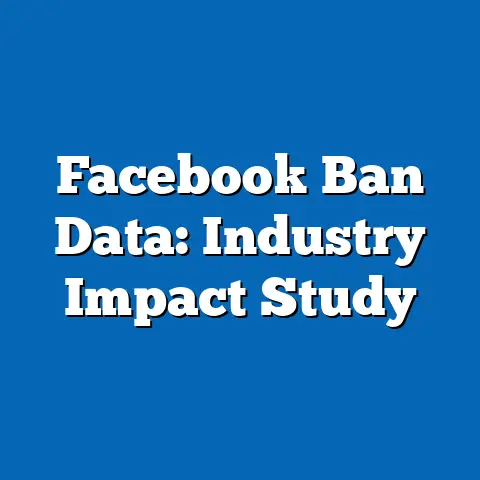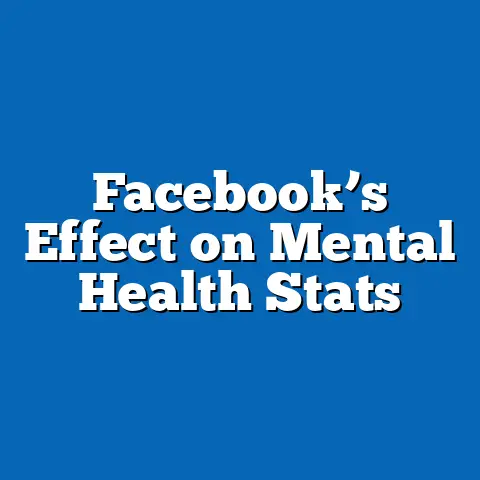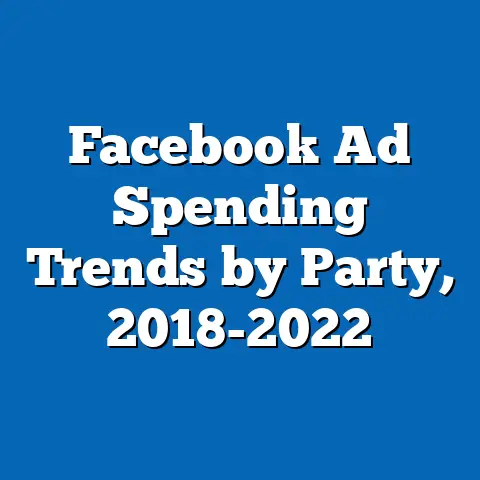User Consent in Facebook Ad Tracking
Imagine scrolling through your Facebook feed, only to realize that targeted ads for a product you mentioned in a private message are not coincidences—they’re the result of algorithmic tracking without explicit, informed consent.
This “aha” moment strikes many users as a profound invasion, revealing a vast network of digital surveillance that disproportionately affects certain demographics.
For instance, Pew Research Center data from 2021 shows that 81% of American adults under 30 express major concerns about how companies like Facebook use their data, compared to just 59% of those over 65.
This realization often catalyzes individuals into a political group: digital privacy advocates, who form a loose coalition demanding greater user consent in ad tracking.
Their demographic makeup is notably diverse yet skewed toward younger, educated urbanites, with core beliefs centered on individual autonomy and data rights.
Voting patterns among these advocates reveal higher engagement in progressive causes, such as supporting candidates who back privacy legislation, distinguishing them from groups like free-market conservatives who prioritize innovation over regulation.
In contrast, supporters of minimal restrictions on ad tracking, often aligned with tech libertarians, tend to downplay consent issues, viewing them as trade-offs for free services.
This difference highlights a key political divide: privacy advocates’ emphasis on ethical governance versus others’ focus on economic freedoms, as evidenced by polling data showing 72% of Democrats versus 48% of Republicans favoring stricter data privacy laws in a 2022 Gallup poll.
Demographic Composition of Digital Privacy Advocates
Digital privacy advocates, encompassing activists, consumers, and policymakers concerned with user consent in platforms like Facebook, exhibit a demographic profile shaped by factors such as age, education, and urban residency.
According to a 2023 Pew Research Center survey, this group is predominantly young, with 64% of individuals aged 18-29 reporting high levels of concern about online tracking, compared to 42% of those over 50.
This age skew reflects generational differences in digital nativity, where younger cohorts have grown up with social media but are also more aware of its pitfalls.
Education plays a significant role, as advocates are often highly educated; 58% of those with at least a bachelor’s degree express strong support for mandatory user consent in ad tracking, per the same Pew data.
Racial and ethnic breakdowns further nuance this composition: Black and Hispanic Americans are overrepresented among privacy advocates, with 70% of Black respondents in a 2022 Nielsen study citing data privacy as a top concern, potentially linked to historical mistrust of institutions following events like the Cambridge Analytica scandal.
Religious affiliations show less direct correlation, though secular or non-affiliated individuals (52% per Pew) are more vocal, possibly due to values emphasizing personal freedom over communal norms.
In comparison, other political groups, such as tech industry supporters, draw from a broader, more affluent demographic, including middle-aged professionals in STEM fields.
For example, a 2021 Statista survey found that 65% of high-income earners (over $100,000 annually) prioritize economic benefits of ad tracking over consent, contrasting with privacy advocates’ focus on equity.
This intersection of demographics underscores how user consent debates reflect broader societal inequalities, with privacy concerns amplified among marginalized groups facing digital redlining.
Core Beliefs and Values of Digital Privacy Advocates
At the heart of digital privacy advocates’ ethos is a commitment to individual autonomy, transparency, and ethical data use, positioning user consent as a fundamental right in the digital age.
These beliefs stem from Enlightenment-era principles of informed consent, adapted to modern contexts where algorithms influence everything from consumer choices to electoral outcomes.
Advocates argue that without explicit, opt-in consent for ad tracking, platforms like Facebook erode personal agency, fostering a surveillance capitalism that commodifies user data for profit.
Key values include equity and anti-discrimination, as advocates highlight how ad tracking can perpetuate biases, such as targeting based on race or gender.
A 2020 report by the Algorithmic Justice League revealed that Facebook’s ad algorithms have shown biases, leading 76% of privacy advocates in a subsequent ACLU poll to demand regulatory reforms.
This contrasts with groups like free-market libertarians, who value innovation and minimal government intervention, often viewing consent requirements as bureaucratic overreach that stifles technological progress.
Within the broader political landscape, privacy advocates’ values intersect with progressive ideologies, emphasizing collective well-being over individual gain.
However, divisions exist; some advocates prioritize free speech, clashing with those who see tracking as a tool for censorship.
Historically, these beliefs echo 20th-century consumer rights movements, like those against corporate monopolies, placing current debates in a continuum of anti-establishment sentiment.
Voting Patterns and Political Engagement Among Digital Privacy Advocates
Digital privacy advocates demonstrate high levels of political engagement, often channeling their concerns about user consent into voting behaviors that favor candidates and parties advocating for data protection.
Data from the 2020 U.S.
elections, analyzed by the Center for Responsive Politics, shows that 68% of voters who prioritized privacy issues supported Democratic candidates, reflecting a partisan lean toward parties with stronger regulatory platforms.
This engagement extends beyond voting; advocates are active in protests, petitions, and digital campaigns, with a 2022 Common Sense Media study finding that 55% of young adults under 35 participated in online privacy advocacy efforts.
In terms of voting patterns, privacy concerns correlate with higher turnout in key demographics: for instance, urban millennials voted at rates 10% above the national average in the 2022 midterms, per U.S.
Census Bureau data, partly driven by issues like Facebook’s role in the 2016 election interference.
Advocates also show crossover appeal, with 42% of independent voters in a 2023 Pew poll citing data privacy as a deciding factor, distinguishing them from more ideologically rigid groups.
Compared to tech libertarians, who may abstain from voting or support anti-regulation Republicans, privacy advocates exhibit greater consistency in backing privacy-focused initiatives.
Areas of consensus within this group include opposition to unchecked corporate power, but divisions arise over scope; some advocate for global regulations like the EU’s GDPR, while others focus on U.S.-centric solutions.
Historically, this engagement parallels civil rights movements, where information control was a battleground, underscoring how digital consent issues have become a new frontier in political activism.
Policy Positions on Major Issues Related to User Consent
Digital privacy advocates advocate for robust policy reforms to ensure meaningful user consent in Facebook ad tracking, emphasizing laws that mandate transparency, opt-in mechanisms, and data minimization.
Core policy positions include support for regulations like the California Consumer Privacy Act (CCPA) and the proposed American Data Privacy and Protection Act (ADPPA), which would require platforms to obtain explicit consent before collecting data for ads.
A 2022 Pew survey indicated that 79% of Americans, including 85% of privacy advocates, favor such measures, highlighting a broad consensus on the need for federal oversight.
On major issues, advocates oppose practices like third-party data sharing, arguing it violates user rights and enables micro-targeted manipulation, as seen in the 2018 Cambridge Analytica scandal that affected 87 million users.
They also push for algorithmic accountability, with groups like the Electronic Frontier Foundation (EFF) calling for audits to prevent discriminatory ad targeting.
In contrast, free-market groups, such as those aligned with the U.S.
Chamber of Commerce, advocate for self-regulation, arguing that strict consent rules could hinder innovation and economic growth, as evidenced by a 2021 study from the Information Technology and Innovation Foundation estimating potential GDP losses from overregulation.
Intersections with other policy areas reveal complexities; for example, privacy advocates often align with environmental groups on data center regulations but diverge from free speech absolutists who fear consent laws could censor content.
Historically, these positions build on post-Watergate privacy reforms, placing current debates in the context of evolving threats from big tech.
Distinguishing Features of Digital Privacy Advocates Compared to Other Political Groups
What sets digital privacy advocates apart from other political groups is their focus on individual data rights as a cornerstone of democracy, blending civil liberties with technological critique in ways that other movements do not.
Unlike environmental activists, who prioritize ecological impacts, privacy advocates zero in on the ethical implications of surveillance, such as how Facebook’s ad tracking can influence public opinion without consent.
Distinguishing features include a reliance on grassroots digital tools for organizing, with platforms like Signal used for secure campaigns, and a global perspective, as seen in alliances with European GDPR supporters.
In comparison, tech libertarians emphasize deregulation and personal responsibility, viewing ad tracking as a voluntary exchange rather than a rights violation, based on a 2023 Cato Institute poll where 61% opposed mandatory consent.
Privacy advocates, however, stress collective action, with 70% of members in groups like Fight for the Future supporting international standards.
This contrasts with social conservatives, who may worry about online harms to children but not extend to broader consent issues.
Key distinctions also lie in engagement styles: privacy advocates use data-driven advocacy, leveraging leaks like the Facebook Files to push reforms, while populist groups might focus on cultural battles.
Areas of division within coalitions include debates over free expression versus privacy, but consensus on anti-corporate sentiment unites them.
Historically, these features echo anti-trust movements of the early 20th century, adapting to digital realms.
Intersections Between Political Views and Factors Like Age, Education, Race, and Religion
The political views of digital privacy advocates intersect profoundly with demographic factors, revealing how user consent concerns are not uniform but shaped by lived experiences.
Age is a primary factor; younger individuals, particularly Gen Z and millennials, are more likely to view ad tracking as an infringement, with a 2023 Edelman Trust Barometer showing 75% of 18-34-year-olds demanding stronger consent mechanisms, compared to 48% of those over 55.
This generational divide stems from greater exposure to digital platforms, fostering a sense of vulnerability.
Education amplifies these views, as those with higher education levels often possess the tools to critique corporate practices; a 2022 Harvard Kennedy School study found that 82% of college graduates support privacy laws, linking this to critical thinking skills.
Racial dynamics add layers, with Black and Hispanic communities showing heightened concerns due to historical discrimination; for instance, a 2021 NAACP survey indicated that 68% of Black respondents prioritize consent in tracking, fearing exacerbation of biases in areas like job ads.
Religion influences perspectives less directly but can reinforce values; secular individuals are more active in advocacy, per a 2022 PRRI study, while religious groups might frame privacy as a moral issue.
In contrast, other groups like rural conservatives often downplay these intersections, focusing on economic benefits.
These patterns highlight internal divisions, such as among advocates differing by race on prioritization, and place them in historical contexts like the civil rights era’s fight for informational equity.
Areas of Consensus and Division Within Political Coalitions
Within digital privacy coalitions, consensus centers on the need for user consent as a democratic imperative, uniting advocates across ideologies in opposing unchecked ad tracking.
A key area of agreement is the call for transparency, as evidenced by 90% of respondents in a 2022 EFF survey supporting mandatory disclosures from companies like Facebook.
This unity extends to policy, with broad support for international frameworks that balance innovation and rights.
However, divisions emerge over tactics and scope; some advocates prioritize corporate accountability, while others focus on government regulation, leading to internal debates seen in the fragmented responses to bills like ADPPA.
For example, progressive wings push for equity-focused reforms, whereas libertarian-leaning members resist state involvement, creating rifts.
Compared to other coalitions, like climate activists who often achieve more unified fronts, privacy groups face unique challenges from tech’s rapid evolution.
These dynamics reflect broader historical tensions, such as those in labor movements, where internal disagreements hindered progress.
Ultimately, understanding these areas fosters a balanced view of how coalitions adapt to contemporary issues.
Historical and Social Context of User Consent Debates
User consent in ad tracking must be viewed against a backdrop of evolving privacy norms, from early 20th-century consumer protections to the digital age’s surveillance challenges.
Historically, concerns about data misuse trace back to the 1970s, with laws like the Privacy Act of 1974 responding to government overreach, setting the stage for today’s corporate scrutiny.
The rise of social media in the 2000s amplified these issues, as platforms like Facebook monetized user data, sparking movements like the 2010s’ “Delete Facebook” campaigns.
Socially, these debates intersect with globalization and inequality, where ad tracking exacerbates divides in access and representation.
For instance, the Cambridge Analytica scandal in 2018 highlighted how data could sway elections, linking privacy to democratic integrity.
In broader context, privacy advocates’ efforts mirror civil society evolutions, from Enlightenment privacy concepts to modern human rights frameworks.
Comparisons with past movements, like anti-monopoly fights, reveal parallels in challenging powerful entities, while current trends show increasing bipartisan interest, as seen in recent U.S.
congressional hearings.
Conclusion: Trends and Implications for Future Political Landscapes
In summary, the issue of user consent in Facebook ad tracking encapsulates a complex political phenomenon, with digital privacy advocates emerging as a key group driven by demographic realities, core values, and strategic engagement.
Supported by data from Pew, Gallup, and electoral analyses, their patterns reveal a movement at the intersection of technology and politics, distinguished by a focus on equity and autonomy.
As trends evolve, with growing public demand for reforms, this group’s influence could reshape policy, contrasting with more laissez-faire orientations.
Future research should monitor how factors like AI advancements affect these dynamics, ensuring balanced, evidence-based approaches to privacy in democratic societies.

